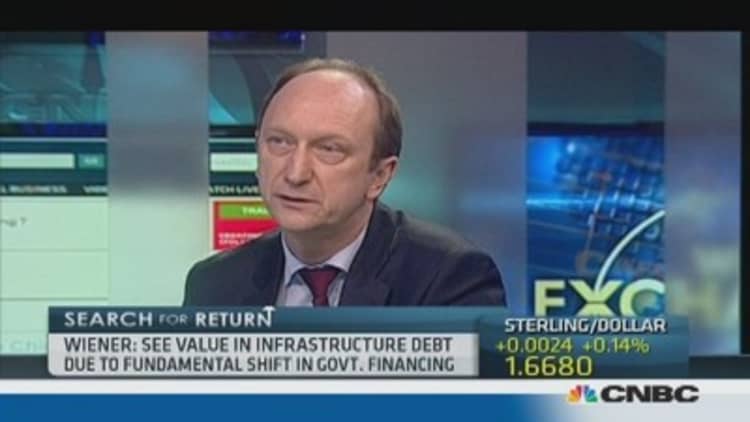
All eyes are on the European Central Bank's meeting next week, with many analysts expecting further accommodative measures to be unveiled, which could see the euro weaken.
But not all are convinced that monetary easing could signal the end of the rally which has seen the euro gain 4.2 percent against the dollar in the last 12 months.
"I think that the euro is fundamentally strong," Klaus Wiener, head of tactical asset allocation at Generali, told CNBC. "Contrary to what many people believe, we see capital inflows into the euro area, and quite a lot actually, given the fact that we have improvement in growth."
Analysts are speculating over whether the European Central Bank (ECB) will follow its key interest rate cut in November with further action in March.
While the euro zone economy showed signs of further recovery in the fourth quarter of 2013, growing by 0.3 percent, low inflation continues to be a concern. for a second consecutive month, way below the ECB's 2 percent target and fueling fears of deflation.
(Read more: Euro soars as Draghi plays down deflation talk)
ECB President Mario Draghi has repeatedly said the central bank is willing to take action if necessary. Nonetheless, earlier this month he said policymakers needed more information on the "complex" economic picture before taking any decisions.
Irrespective of any decision, Wiener said that it would be a rate hike from the U.S. Federal Reserve that would case the euro to weaken, not ECB easing.
"We think that the euro will stay strong until we finally get the message from the Fed that they will hike rates -- but that will not come before later in 2014," Wiener said. "In 2015, first half, we will see the first hike in the U.S. Fed funds rate, that's the time the dollar can be strong."
(Read more: Foreign trade driving German growth)
Geoffrey Yu, a currency strategist at UBS, said further accommodative policy from the ECB coupled with an improving macro outlook in the U.S. would knock the euro's support.
"The level of the euro will be uncomfortable for the ECB beyond current levels, and a combination of rhetoric and outright policy will be adopted to counter potential disinflationary headwinds," Yu said in an emailed statement.
"We believe U.S. data will clear heading into late in the first quarter as weather effects correct and the dollar – already benefiting from growth status via outperforming U.S. stocks – will prove more attractive as growth differentials diverge."
—By CNBC's Arjun Kharpal: Follow him on Twitter @ArjunKharpal


